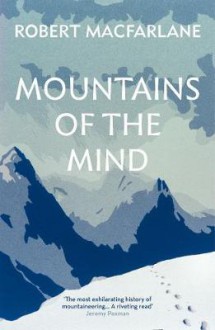Robert Macfarlane's Mountains of the Mind is the most interesting of the crop of books published to mark the 50th anniversary of the first successful ascent of Everest. Macfarlane is both a mountaineer and a scholar. Consequently we get more than just a chronicle of climbs. He interweaves...
show more
Robert Macfarlane's Mountains of the Mind is the most interesting of the crop of books published to mark the 50th anniversary of the first successful ascent of Everest. Macfarlane is both a mountaineer and a scholar. Consequently we get more than just a chronicle of climbs. He interweaves accounts of his own adventurous ascents with those of pioneers such as George Mallory, and in with an erudite discussion of how mountains became such a preoccupation for the modern western imagination.
The book is organised around a series of features of mountaineering--glaciers, summits, unknown ranges--and each chapter explores the scientific, artistic and cultural discoveries and fashions that accompanied exploration. The contributions of assorted geologists, romantic poets, landscape artists, entrepreneurs, gallant amateurs and military cartographers are described with perceptive clarity. The book climaxes with an account of Mallory's fateful ascent on Everest in 1924, one of the most famous instances of an obsessive pursuit. Macfarlane is well-placed to describe it since it is one he shares.
MacFarlane's own stories of perilous treks and assaults in the Alps, the Cairngorms and the Tian Shan mountains between China and Kazakhstan are compelling. Readers who enjoyed Francis Spufford's masterly I May Be Some Time: Ice and the English Imagination will enjoy Mountains of the Mind. This is a slighter volume than Spufford's and it loses in depth what it gains in range, but for an insight into the moody, male world of mountaineering past and present it is invaluable. --Miles Taylor
show less

